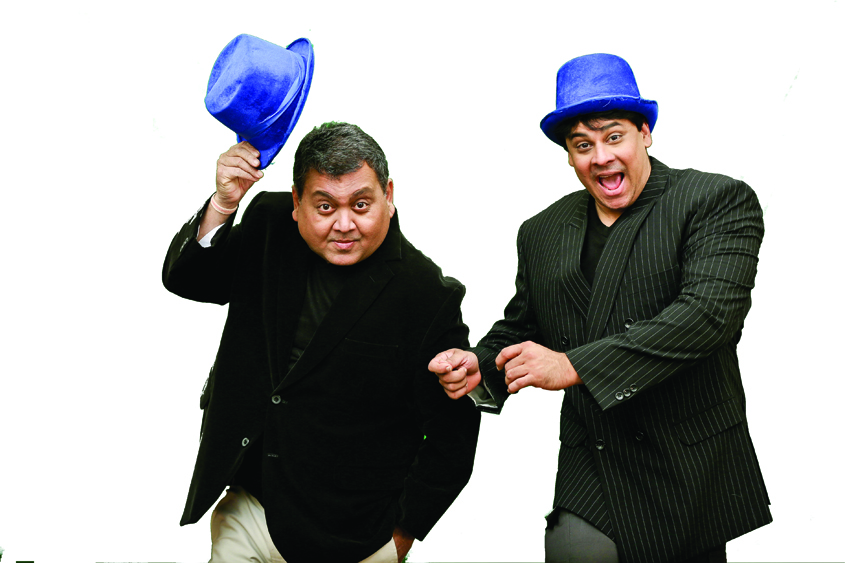He is now set to return, with his longtime friend Cyrus Broacha, on stage, where he’d be doling out comic insights on how life changes at the age of 40. He speaks to Guardian 20 about political satire, and why he has always found it difficult to be funny about food.
Q. You are doing a standup comedy show on life post-40. Could you talk about that?
A. Well, I don’t think we should call it a standup comedy show completely, because it is a little different to what a standup comedy show actually is. Standup comedy has one person standing and telling jokes, this show of ours falls a little into the formats of both a standup and a review. We’ve got a little bit of interaction with the audience, there is Cyrus [Broacha] telling jokes and then there is me with a little bit of sketch comedy on stage. You could call it “Standup comedy +++”
Q. You have always been a connoisseur of food. And yet, your humour —going by the sketches you have presented — rarely touches upon the topic that seems to be closes to your heart, food. Why do you think that is so?
A. Because I take food very seriously! So I find it difficult to be funny about food and when there is food in front of me, I forget all other things. I forget about being funny, and end up making a point, about society, about geography, history, everything else. Hence I don’t have any humour coming out of it, but since you have brought it to my notice, I am going to make an effort to do that.
Q. You are a food writer, author and also a television personality. Which have you found to be the most effective mode of conveying your views to the masses?
A. Well unfortunately, television has the widest reach. So television is a great way to convey anything to the people. I remember many years ago, and I am talking about some 20-25 years back, when I had first appeared in a TV commercial, although it was a 4-5 second commercial, the recognition that I got was so sudden and immediate, it dawned upon me then the kind of exposure television can give, even to a bad actor like me.
“I take food, very seriously! So I find it difficult to be funny about food and when there is food in front of me, I forget all other things, so I forget about being funny, and end up making a point, about society, about geography, history, everything else.”
Q. Your weekly satire comedy show The Week That Wasn’t, with comedian Cyrus Broacha on CNN IBN (now on Comedy Central) completed eight years and 450 episodes in 2015. If you’d like to share a little bit about this show?
A. Political satire has been there since many years. Imagine, the Portuguese used comedy to convey political thoughts and I am talking about the medieval times, about 300 years ago. It’s the same format that has been now polished and internationally acknowledged. It is a political satire comedy where we put in our best efforts.
Q. And how is it like sharing space with Cyrus Broacha?
A. Very smelly.
Q. You and Broacha were part of a sketch show, Cyrusitis, which was directed by you. How different is 40 Shades of Grey Hair from Cyrusitis?
A. It is similar to the format of Cyrusitis but the theme, gags and jokes and all are very different and brand new. And the other difference is that 40 Shades of Grey Hair is directed by Raell and not me, this goes to show how much I aged during directing Cyrusitis and having to deal with Cyrus. My working relationship with Cyrus has been for around 25 years.
Q. What according to you defines comedy?
A. Anything that’s funny, anything that makes you laugh is comedy, I don’t care if it’s intellectual, stupid, poor, really amateur. If it makes you laugh, it’s comedy for me.
Q. How do you look at the current state of comedy scene in India?
A. The comedy scene is exploding! It’s brilliant! The more people try comedy the more it’s good for the business, the better it is for different genres, people accepting and welcoming ideas like we can laugh at ourselves. It’s nice. It’s nice to watch people in groups going to watch one man or one woman who stands on stage and tells them jokes. It did not happen so much with the English language earlier but it’s happening now and it’s extremely encouraging to see the market opening up like this.
Q. Do you think comedy needs censoring these days?
A. Absolutely not!
Q. What according to you is the lowest form of wit and why?
A. They say that the “pun” is the lowest form of humour (until you think of the pun yourself.)

